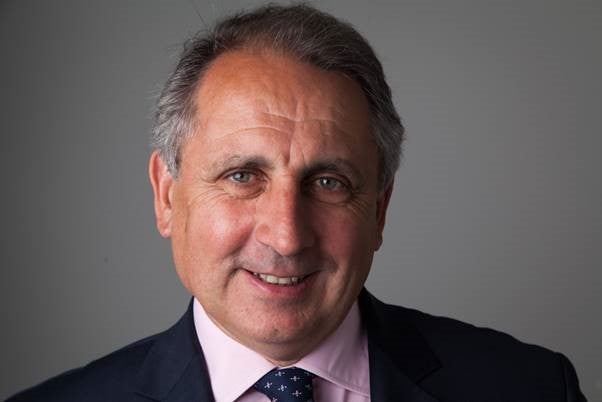
Stephen Haddrill, Director General of the Finance & Leasing Association (FLA), is set to retire next summer after five years in the position. The search for his successor will commence in due course.
Commenting on his departure, Stephen Haddrill said: “I joined the FLA at the end of 2019, and during five eventful years have seen our industry’s mettle tested by a series of crises, including Covid, unprecedented political turbulence, and a cost-of-living crisis that is still being felt across the UK.
“Throughout each challenge, the Association has been supported by a strong and engaged membership, and in turn the FLA team has helped the sector by further strengthening engagement with government, regulators and our other stakeholders.
“I am immensely proud of what we have achieved together for customers and the industry, and I look forward to seeing the FLA thrive into the future.”
Regulatory Leadership
Before joining the FLA, Haddrill served as Chief Executive of the Financial Reporting Council (FRC) from 2009 to 2019. At the FRC, he oversaw critical reforms in audit and accounting standards, steering the regulatory body through a period of scrutiny and transformation in the aftermath of the global financial crisis. His efforts helped to rebuild trust in the accounting profession, particularly after high-profile corporate failures during his tenure prompted wide-reaching changes to governance and audit practices.
How well do you really know your competitors?
Access the most comprehensive Company Profiles on the market, powered by GlobalData. Save hours of research. Gain competitive edge.

Thank you!
Your download email will arrive shortly
Not ready to buy yet? Download a free sample
We are confident about the unique quality of our Company Profiles. However, we want you to make the most beneficial decision for your business, so we offer a free sample that you can download by submitting the below form
By GlobalDataDuring Haddrill’s tenure at the FRC, the collapse of Carillion in January 2018 emerged as a pivotal event for the auditing profession. The failure of Carillion, a major construction and facilities management company, exposed considerable deficiencies in the audit process, particularly regarding KPMG’s oversight.
This scandal placed the FRC under intense scrutiny, leading to calls for substantial reforms. Consequently, the decision was made to replace the FRC with the more powerful Audit, Reporting and Governance Authority (ARGA). In response to the Carillion incident, the FRC imposed record fines on KPMG and its partners involved in the audits, setting a precedent for stricter auditing standards.
Prior to his work at the FRC, Haddrill was Director General of the Association of British Insurers (ABI), where he advocated on behalf of the insurance industry, focusing on regulatory policy and consumer protection.
Advocacy and reform at the FLA
Haddrill’s leadership at the FLA, which began towards the end of 2019, saw him champion several key reforms for the asset finance and leasing sectors. A significant focus of his efforts was the modernisation of the UK’s Consumer Credit Act (CCA) of 1974, a regulatory framework often described as outdated.
In an interview with Leasing Life, Haddrill referred to the Consumer Credit Act (CCA) as an “out-of-date” regulatory framework. He noted that the CCA, which regulates consumer credit for over 40,000 UK firms, is “complex and ill-suited to the way in which … SMEs lease equipment to grow their businesses.” The FLA has been advocating for changes to the Act since 2015 and comprehensive changes are expected to take years to implement.
Reform of the Consumer Credit Act is within our grasp: FLA
Pandemic
During the COVID-19 pandemic, Haddrill faced a significant challenge in advocating for equitable treatment of its diverse membership, which included both banks and non-bank lenders.
As the UK government and the Bank of England (BoE) introduced emergency economic measures to mitigate the financial impact of the crisis, the BoE’s Term Funding Scheme for Small and Medium-sized Enterprises (TFSME) was designed to provide cheap credit to SMEs. However, the scheme was restricted to incumbent and challenger banks, effectively excluding non-bank lenders, which comprised over 50% of the FLA’s membership.
The FLA argued that this exclusion was a missed opportunity to deliver critical funding to a wider pool of SMEs, given the significant role non-bank lenders played in asset finance and leasing. Haddrill called on the BoE and the Prudential Regulation Authority (PRA) to extend the TFSME to non-bank lenders, emphasising that these firms provided £20 billion in asset finance annually and were well-positioned to assist SMEs through the economic downturn. Despite these lobbying efforts, the BoE’s measures remained narrowly focused, presenting an ongoing advocacy challenge for Haddrill as he sought to represent the full spectrum of the FLA’s members during an unprecedented economic crisis.
Non-banks left out in the cold by BoE’s Covid-19 strategy
Brexit
In addition to regulatory reforms and the pandemic, Haddrill guided the FLA through the challenges posed by Brexit, particularly regarding the leasing and automotive finance industries. In 2024, he successfully negotiated the FLA’s re-entry into Leaseurope, the European Federation for leasing and automotive rental, after a two-and-a-half-year absence following Brexit. The FLA’s return was notably highlighted at Leaseurope’s annual convention in Alicante this month, where Haddrill led discussions on the evolution of the Consumer Credit market.
FLA reaffirms European ties, rejoins Leaseurope post-Brexit
The FLA’s re-engagement with Leaseurope signals a renewed focus on collaboration with European partners, especially in tackling shared priorities like technological innovation and achieving Net Zero goals. These issues have been highlighted as crucial for the industry’s future by the FLA board and are expected to be significant for Haddrill’s successor.
John Phillipou, Chair of the FLA, said: “Stephen has shown unwavering dedication to the FLA membership, modernising the Association and building stronger links with stakeholders, all while negotiating some of the choppiest political and economic water.
“He leaves the FLA on a strong footing and there is no higher praise for a Director General.”







